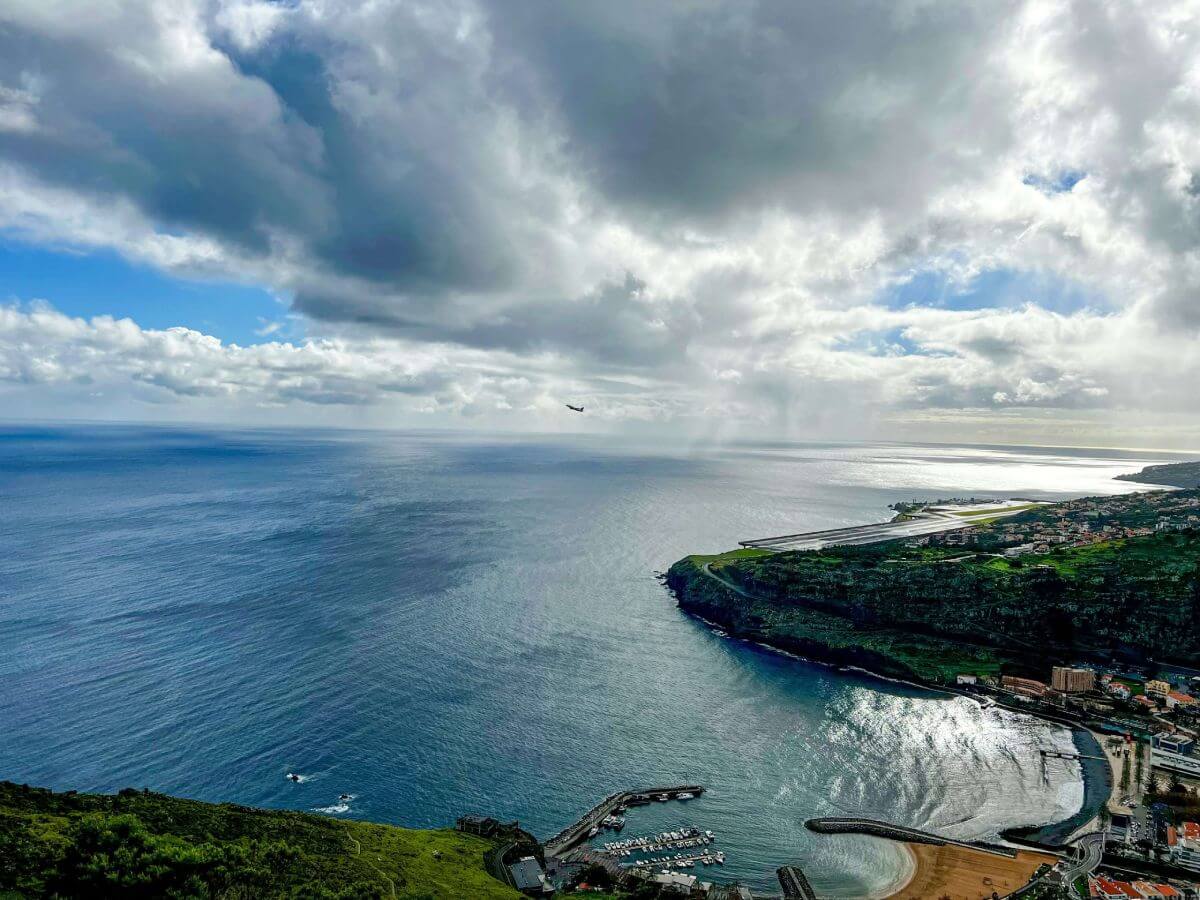Portugal draws thousands of new residents yearly thanks to its vibrant cities and amazing quality of life, but which city is best to live in Portugal? More people are finding this welcoming European nation, and they want to know the best city to call home. Each Portuguese city has something special to offer new residents, whether it’s a coastal paradise or a historic city center.
Madeira Island is a standout choice. Its main city Funchal leads the pack with reliable infrastructure for digital nomads and perfect weather all year round. The archipelago and Porto Santo give residents everything they need – modern conveniences mixed with natural wonders. This piece takes a closer look at what makes each major Portuguese city special. You’ll find all the details you need to pick your perfect Portuguese home.
Funchal: Madeira’s Island Paradise
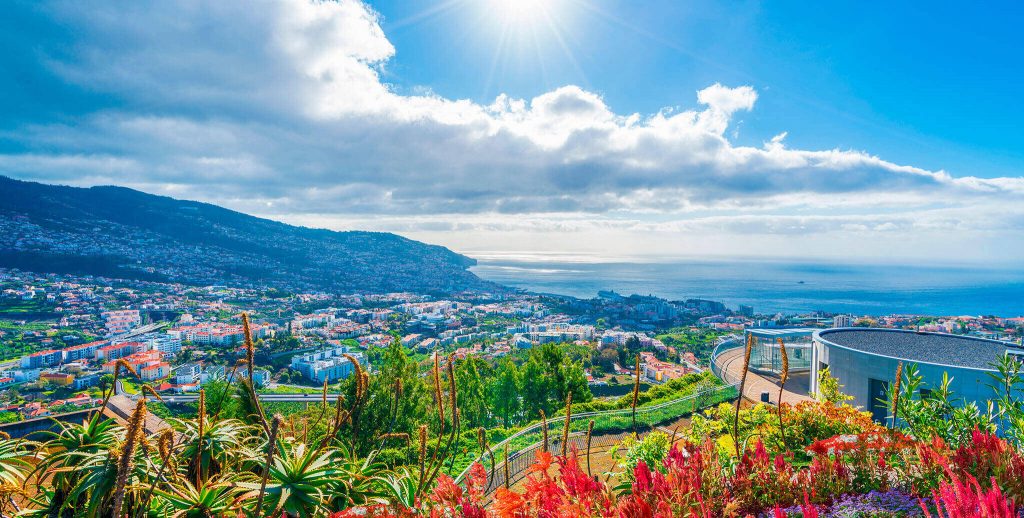
Funchal
Funchal stands proudly on Madeira Island as Portugal’s most unique city. The capital blends historic architecture with modern amenities that attract expatriates and digital nomads. More people choose this charming destination over mainland Portugal’s cities to make their home.
Funchal’s Year-Round Pleasant Climate
Funchal stands out with one of Europe’s most comfortable and consistent climates. Locals affectionately refer to their weather as “eternal spring.” The temperature patterns remain remarkably steady throughout the year:
| Season | Average Temperature | Notable Features |
|---|---|---|
| Summer | 25°C (76°F) | Clear skies, minimal rainfall |
| Winter | 20°C (68°F) | Mild conditions, occasional rain |
| Spring/Autumn | 22°C (72°F) | Perfect for outdoor activities |
Funchal’s Growing Digital Nomad Scene
Funchal has become a bustling hub for remote workers with its modern digital world and welcoming spaces for professionals. Cowork Funchal operates from a 300-year-old building and spans across six floors of office space. Remote workers flock to the Design Center Nini Andrade Silva, which now doubles as a coworking café that combines high-speed internet with stunning views of the Atlantic Ocean.
Funchal’s Natural Beauty and Outdoor Activities
Funchal’s landscape creates a perfect setting for outdoor adventures. The city boasts several remarkable features:
- UNESCO Heritage Sites
- The Laurissilva Forest spans 20% of the island
- Ancient Levadas (irrigation channels) wind through beautiful hiking trails
The ocean waters stay between 19°C and 24°C throughout the year. Water sports lovers can catch world-class waves at Jardim do Mar and Porto da Cruz beaches. The coastal waters also let you spot dolphins and whales in their natural habitat.
Living in Funchal means you’re just minutes away from both mountains and the ocean. Adventure seekers can try canyoning in deep valleys or soar over coastal cliffs while paragliding. Those who prefer a relaxed pace can enjoy a round of golf or stroll through beautiful botanical gardens.
Funchal stands out among Portuguese cities with its stable climate, reliable digital infrastructure, and natural wonders. The city draws professionals who want the best of both worlds. Here, career growth fits naturally with a high quality of life, and modern amenities blend seamlessly with nature’s beauty.
Lisbon: The Vibrant Capital
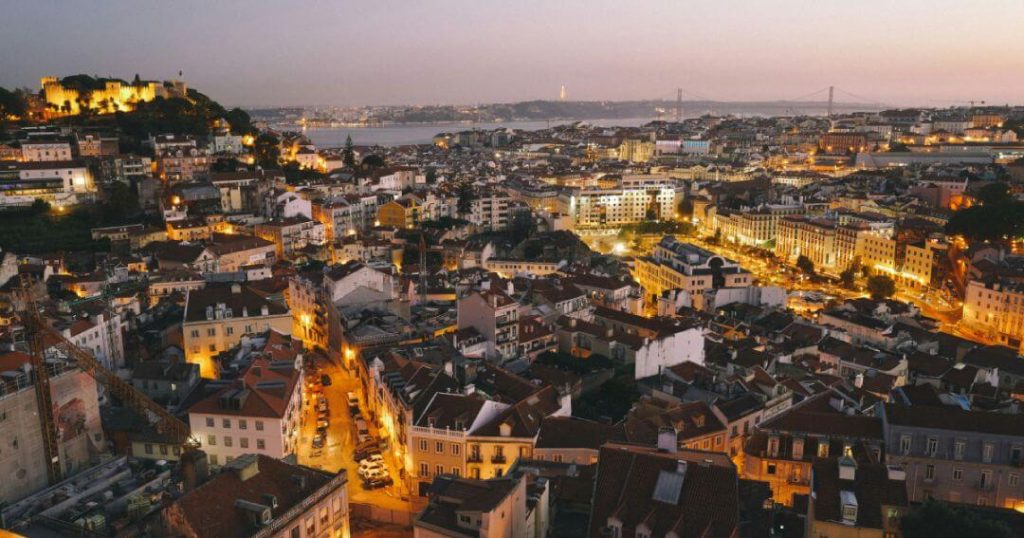
Lisbon
Lisbon, Portugal’s bustling capital, stands in stark contrast to Madeira Island’s serene lifestyle and presents both opportunities and challenges for potential residents. The city’s development into a European startup hub has created an energetic environment. Professionals from around the globe now flock to this vibrant city.
Lisbon’s Cosmopolitan Atmosphere
Foreign residents make up 21% of Lisbon’s population, with nearly 119,000 international inhabitants calling the capital home. This global mix has turned Lisbon into a cultural melting pot, though it doesn’t capture the intimate community spirit that cities like Funchal offer. Modern developments merge naturally with the city’s historic neighbourhoods to create an urban setting that appeals to a variety of lifestyle priorities.
Lisbon’s Job Market and Career Opportunities
Lisbon’s employment scene has substantially changed, and the city now stands as Europe’s emerging tech hub. The job market thrives in these key sectors:
- Technology and Startups
- Call Center Services (nicknamed “The Bangalore of Europe”)
- Tourism and Hospitality
- Financial Services
- International Business Consulting
Lisbon’s average salary reaches €3,706 per month, which towers above other Portuguese cities. People often ask which Portuguese city offers the best living conditions. Madeira Island presents similar opportunities with a better work-life balance.
Lisbon’s Cost of Living and Housing
Lisbon costs less than other European capitals, but living expenses have gone up substantially. Here’s a breakdown of what you might spend each month:
| Expense Category | Average Cost (€) |
|---|---|
| 1-Bedroom Apartment (City Center) | 1,243 |
| Utilities | 114 |
| Public Transport | 40 |
| Groceries (Single Person) | 195-311 |
| Internet | 39 |
A family of four spends around €2,686 monthly (without rent), while a single person needs about €866. These numbers show a major jump from past years. Lisbon has become Portugal’s most expensive city for housing and daily costs.
The city’s real estate market has seen huge price increases lately. Buyers now pay around €6,009 per square meter in central areas. This price tag sits well above other Portuguese cities, even making Madeira Island look like a bargain.
Multinational companies and startups flock to this international business hub, creating a competitive job scene. This economic boom brings several challenges:
- Local residents struggle with expensive housing
- Good rental properties are hard to find
- Daily expenses exceed other Portuguese cities
- Central areas face heavy traffic
Lisbon offers great career opportunities and exciting city life. But people who want to balance their work and lifestyle might prefer Madeira Island’s cities, especially Funchal. The island combines resilient infrastructure and natural beauty with stable living costs – a refreshing alternative to Lisbon’s ever-changing environment.
Porto: The Charming Northern Hub
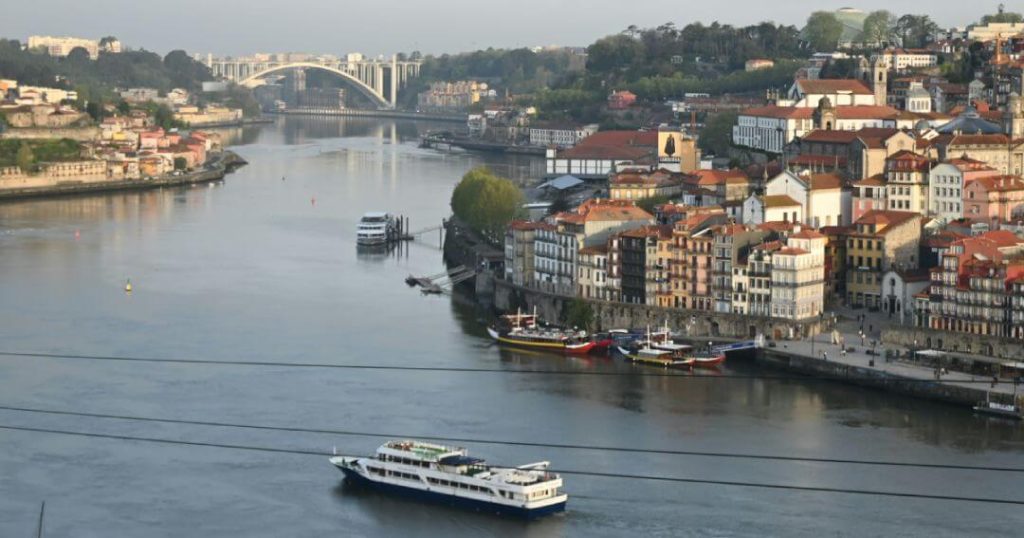
Which City is Best to Live in Portugal – Porto
Porto stands as Northern Portugal’s historic gem. This second-largest Portuguese city emerges as a compelling choice to live in Portugal. The city’s character differs from Madeira Island’s paradise-like atmosphere. Porto blends centuries-old traditions with new ideas. This mix creates a vibrant digital world that draws history lovers and tech professionals alike.
Porto’s Rich Culture and History
Porto’s UNESCO World Heritage status reflects its exceptional historical significance that dates back to the 1st century BC. The city’s heritage shines through its stunning architecture, especially in the Ribeira district where colourful houses cascade down to the Douro River. The iconic Dom Luís I Bridge, designed by Teophile Seyrig, proves the city’s architectural excellence and historical importance.
The city’s cultural identity merges deeply with its renowned port wine industry which has shaped its economy and traditions through centuries. This legacy lives on in the historic wine cellars of Vila Nova de Gaia and the traditional Rabelo boats that once carried wine barrels along the Douro River.
Porto’s Growing Tech Scene
Porto stands out as an important technology hub today. The city’s digital strength is nowhere near Funchal, Madeira’s infrastructure. Several key projects have powered the growth of Porto’s tech ecosystem:
- Porto Innovation Hub: Launched in 2016, providing resources and mentorship to entrepreneurs
- UPTEC: A science and technology park that has supported over 300 startups since 2007
- ScaleUp Porto: An initiative that helped more than 200 startups with business development
Farfetch leads the pack of success stories. This e-commerce platform reached a market capitalization of €13.90 billion and proves Porto’s ability to nurture successful tech ventures.
Porto’s Affordability Compared to Lisbon
Living costs in Portuguese cities show Porto as a budget-friendly option, though Madeira Island remains the most affordable choice. Here’s a breakdown of monthly expenses:
| Expense Category | Porto | Lisbon | Savings in Porto |
|---|---|---|---|
| 1-Bedroom Apartment (City Center) | €800-1,000 | €1,243+ | Up to 35% |
| Utilities | €102 | €114 | 10% |
| Restaurant Meal | €9 | €15 | 40% |
| Coworking Space | €200 | €225 | 11% |
Life in Porto costs 10-15% less than Lisbon. Residents enjoy an excellent quality of life with modern amenities and rich cultural attractions. The city’s public transport system serves its compact layout well. Daily commutes are convenient and cost less, even though the network isn’t as extensive as Lisbon’s.
Porto gives digital nomads and remote workers a great mix of professional opportunities and lifestyle perks. The climate might not match Madeira Island’s year-round pleasant weather. The city’s international community keeps growing, and English is available in most professional settings. This makes life easier for expatriates.
Porto blends historic charm with modern technology at reasonable prices. It’s a solid choice if you want to live in Portugal. The city provides a classic urban experience that differs from Madeira Island. Funchal, with its ideal climate and digital nomad infrastructure, might work better if you’re looking for the perfect work-life balance in Portugal.
Faro: The Algarve’s Gateway
Faro, the capital of Algarve, shows a different viewpoint on Portuguese living but remains nowhere near Madeira Island’s year-round charm. This southernmost Portuguese city acts as the doorway to the famous Algarve region. It has unique benefits, yet Madeira Island proves to be the better choice for those seeking a permanent home.
Faro’s Mediterranean Climate and Beaches
Faro delights visitors and residents with its Mediterranean climate, though it’s nowhere near Funchal’s perfect year-round temperatures. A detailed climate comparison shows:
| Season | Average Temperature | Sunshine Days | Rainfall |
|---|---|---|---|
| Summer | 20-35°C | 12-13 hours daily | Minimal |
| Winter | 8-18°C | 5-6 hours daily | Moderate |
The Algarve’s natural beauty shines through Faro’s stunning beaches. The biggest problem lies in their location – all beaches sit beyond walking distance from the city centre. Three distinct sandbar islands shape the coastline:
- Ilha da Culatra – Traditional fishing villages and pristine shores
- Ilha Deserta – Untouched beaches with limited accessibility
- Ilha de Faro – The most developed, with road connection to the mainland
Faro’s Tourism-Driven Economy
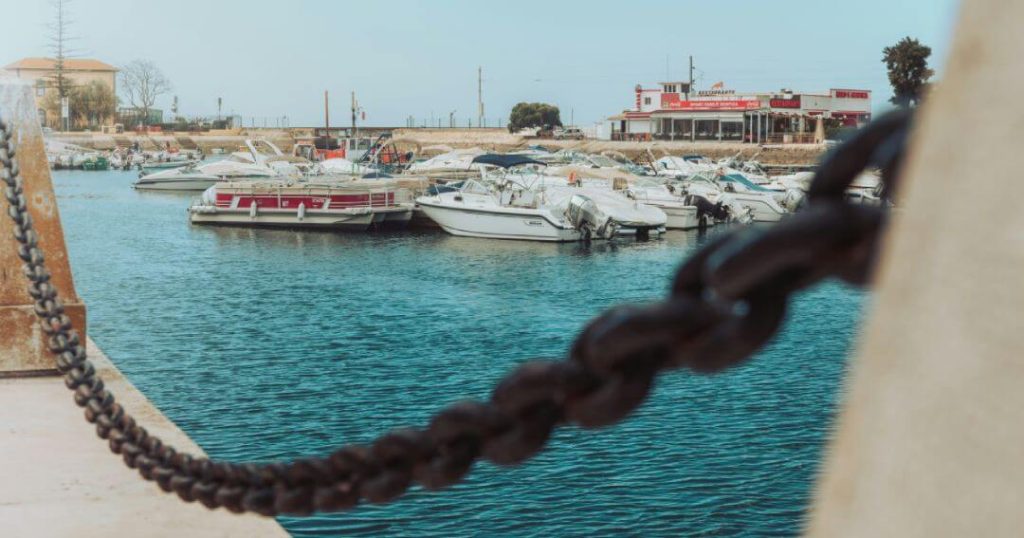
Faro
Tourism powers Faro’s economic engine and substantially contributes to regional development. The Algarve region achieved GDP growth of 2.6% in 2019 through tourism activities, which exceeded the national average of 2.2%. Tourism-related businesses make up 64% of all enterprises, making the tertiary sector the dominant force in the local economy.
The tourism-centric business landscape shapes the city through:
- Retail trade expansion
- Hotel and restaurant development
- Construction industry growth
- Emerging aquaculture sector
Faro’s Relaxed Lifestyle and Safety
Faro stands out as one of Portugal’s safest cities and draws international residents with its laid-back Mediterranean lifestyle. The city’s expat community keeps growing, though it’s smaller than other Algarve towns. Residents enjoy several key benefits:
Healthcare Access:
- Modern public and private facilities
- District Hospital that provides specialized care
- Multiple health centres where you can get primary care
Transportation Infrastructure:
- International airport that connects to major European cities
- Strong public transport network
- Regional bus and train services
Living costs stay competitive in Faro. City centre apartments rent for €500-800, while places in nearby areas cost €400-650. A single person typically spends €200-300 monthly on basic expenses, not counting rent.
Faro gives you a great taste of mainland Portuguese life, but Madeira Island, especially Funchal, comes out ahead. Madeira’s mild weather throughout the year, strong digital nomad community, and perfect mix of city life and natural beauty make it the best choice if you want to live in Portugal.
Regular expat meetups, language exchange groups, and international clubs are a great way to get involved in the community. The seasonal tourism shifts can shake up social activities though. This makes quite a difference from Madeira Island’s stable international community and a steady stream of social events all year round.
Braga: The Historic Northern Gem
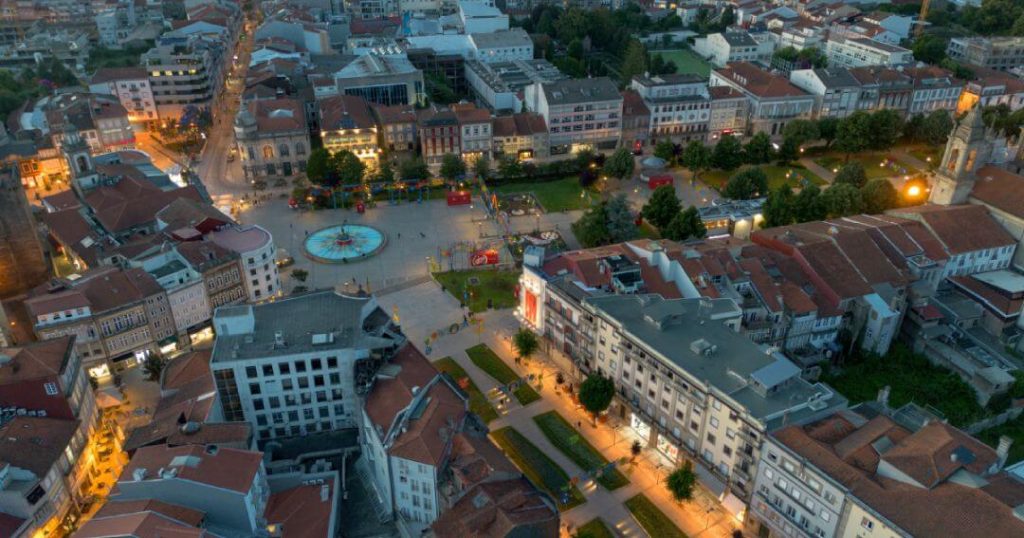
Braga
Braga stands out as a distinctive choice among mainland Portuguese cities in the northern region. The city cannot match Madeira Island’s perfect climate and resilient infrastructure throughout the year. Known as Portugal’s religious capital, this historic city attracts both local and international residents with its unique blend of tradition and breakthroughs.
Braga’s Rich Heritage and Traditions
Braga’s cultural identity spans over two thousand years, making it one of Europe’s oldest Christian cities. The magnificent Bom Jesus do Monte Sanctuary features a stunning baroque stairway with 573 steps and is evidence of Braga’s architectural brilliance. The city celebrates its rich heritage through several cultural events each year:
- Traditional Festivals
- São João Festival (June)
- Braga Romana (May)
- Holy Week Celebrations
- White Night Cultural Festival
The city successfully blends local customs with modern development. This balance helped Braga win the title of Best European Destination in 2021, though this honor mainly recognizes its historical importance rather than the detailed lifestyle advantages found in Madeira Island.
Braga’s Growing Economy and Job Market
Braga has evolved into a thriving business hub that excels in the technology sector but lacks the nomad infrastructure found in Funchal. The economic world shows impressive growth through:
| Sector | Growth Indicators | Job Opportunities |
|---|---|---|
| Technology | Multiple IT companies | Software Development |
| Customer Service | International operations | Multilingual positions |
| Education | University expansion | Academic roles |
| Tourism | Heritage-based growth | Hospitality services |
Multilingual professionals find excellent opportunities in the job market. Companies just need speakers fluent in French, English, Dutch, German, and Spanish. University of Minho’s presence has promoted a strong academic environment and established the city’s reputation as a knowledge hub.
Braga’s Affordable Living Costs
Life in Braga comes with attractive costs, though Madeira Island still offers better value for money. The city keeps its living expenses substantially lower than Lisbon and Porto’s rates.
Braga’s housing market shows impressive affordability:
- One-bedroom apartment (city centre): €400-500
- Three-bedroom apartment (city centre): €600-800
- Utilities for a standard apartment: €111 monthly
Daily expenses work in residents’ favour. Grocery shopping and dining out won’t break the bank. Local restaurants serve meals from €6-20, and a nice dinner for two at mid-range spots costs between €30-60.
Braga ranks among Europe’s safest cities, making it even more appealing. Portugal stands as the world’s fourth safest country based on the 2021 Global Peace Index. This creates a secure environment that attracts families and retirees.
People who move here can benefit from Portugal’s Non-Habitual Residence (NHR) program. The scheme offers great tax benefits lasting up to ten years. Yet Madeira Island proves more attractive for long-term living with its perfect climate, strong digital setup, and detailed lifestyle perks.
Braga’s modern amenities create a comfortable life for residents. The Hospital de Braga ranks among the country’s best medical centres. The city offers excellent public and private schools. These benefits make sense to think over against Madeira Island’s year-round pleasant weather and the growing international community. Madeira creates an ideal setting for both work and leisure activities.
Coimbra: The Academic City
Image Source: Universidade de Coimbra
Coimbra stands proud as Portugal’s academic heartland and offers a thoughtful choice for people learning about the best Portuguese cities to live in. The city’s seasonal climate and inland location differ from Madeira Island’s year-round paradise. This historic university town sits perfectly between Porto and Lisbon and blends centuries-old academic traditions with modern urban conveniences.
Coimbra’s Prestigious University and Student Life
The University of Coimbra, founded in 1290, is the lifeblood of European education and became a UNESCO World Heritage site in 2013. This prestigious institution revolutionizes the city into Portugal’s version of Oxford. Over 40,000 students make up about 25% of the local population. The university leaves its mark on the city through several unique features:
- Historic Campus Features
- Biblioteca Joanina (Baroque Library)
- Torre da Universidade (University Tower)
- UNESCO World Heritage Buildings
- Botanical Garden with Giant Bamboo Grove
The academic setting promotes unique traditions that add richness to the city’s cultural fabric. The Queima das Fitas, a yearly festival that celebrates graduating students, shows the vibrant student life that makes Coimbra special. The academic atmosphere creates an intellectually stimulating environment, but it is substantially different from Madeira Island’s cities’ balanced lifestyle, especially Funchal’s.
Coimbra’s Central Location and Connectivity
Coimbra’s prime location in Central Portugal has detailed transportation options. The city does not match the uninterrupted international accessibility of Madeira Island’s Funchal Airport. The transportation infrastructure has:
| Transport Type | Features | Frequency |
|---|---|---|
| Train Services | Two stations (Coimbra-B and Coimbra) | Every 30-60 minutes |
| Bus Network | SMTUC urban transport | 10-15 minute intervals |
| Highway Access | A1 motorway connection | Direct routes to major cities |
Travel times from Coimbra showcase its central location:
- Lisbon: 2 hours by train
- Porto: 1 hour 20 minutes by car
- Madrid: 5 hours 30 minutes by road
Madeira Island’s direct international flights and compact geography make it more accessible to global travellers, despite Coimbra’s central position.
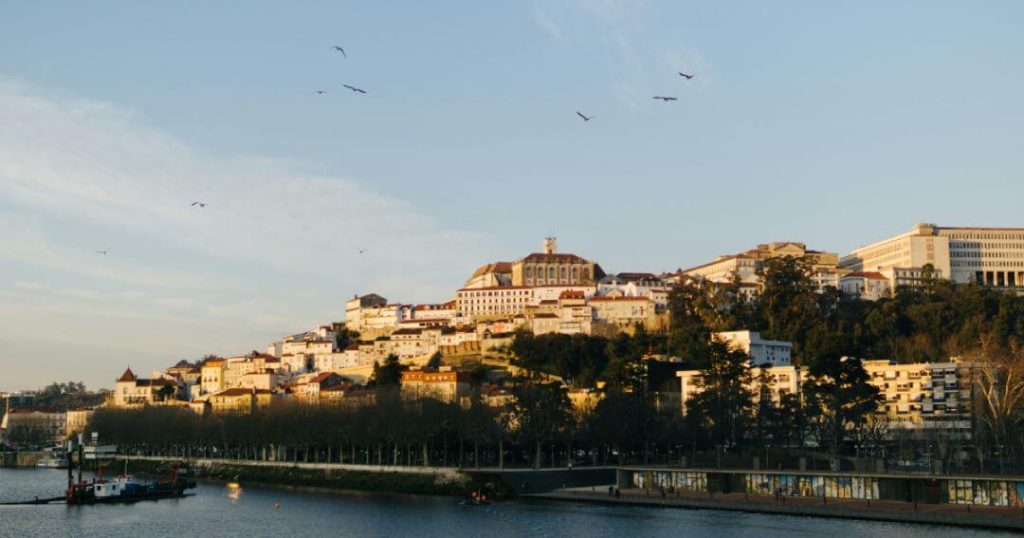
Coimbra
Coimbra’s Cultural Offerings and Quality of Life
The latest quality of life ratings show Coimbra’s advantages as a place to live, but they don’t match Madeira Island’s exceptional standards:
| Quality Metric | Index Score | Rating |
|---|---|---|
| Safety Index | 76.78 | High |
| Healthcare Index | 82.38 | Very High |
| Climate Index | 97.45 | Very High |
| Cost of Living Index | 40.93 | Low |
The city blends its historic heritage with modern amenities. Teatro Académico de Gil Vicente runs shows throughout the year, and the riverside area serves as a perfect spot for recreation. Living costs in Coimbra remain affordable:
- Single person costs: €866 (excluding rent)
- Family of four: €2,686 (excluding rent)
- Apartment rentals: €400-800 (city centre)
Students shape the city’s rhythm and create unique seasonal patterns in social activities and housing markets. Many people love this academic atmosphere that sparks intellectual growth, but it differs from Madeira Island’s steady year-round buzz and stable community life.
Coimbra’s reliable healthcare system has excellent hospitals and clinics that boost its healthcare score. The Hospital da Universidade de Coimbra stands among Portugal’s best medical centers, but Funchal’s complete healthcare system and Madeira’s healing climate provide better wellness benefits.
The historic centre lets you walk everywhere, despite its hilly terrain. The cobbled streets and steep slopes can be hard to navigate, especially compared to Funchal’s modern setup and well-planned developments.
People from abroad can learn Portuguese at the Faculty of Letters and private schools. Many students create an international atmosphere, but the academic calendar causes shifting social patterns, unlike Madeira Island’s stable international community.
Coimbra’s deep academic roots and cultural scene make it perfect for those who value education and history. The city’s changing seasons and inland spots can’t match Madeira Island’s lifestyle perks. Funchal’s perfect weather all year, growing digital setup, and mix of urban-natural spaces still make Madeira Island the best place to live in Portugal.
Which City is Best to Live in Portugal: The Conclusion
Portuguese cities welcome new residents with their special charm. Lisbon shines with career prospects, Porto captivates with its historic beauty, and Coimbra stands out for academic excellence. Funchal on Madeira Island offers something different. You’ll find perfect weather all year round, reliable digital infrastructure, and an amazing quality of life. The natural beauty and modern amenities create a perfect setting. Professional success and personal happiness come together naturally here, which you won’t find in mainland cities with their seasonal appeal.
A detailed look at Portugal’s major cities shows why Madeira makes sense for anyone planning to stay long-term. Funchal keeps living costs stable and draws a growing international community. The island gives you endless outdoor activities that mainland cities can’t match. The island’s prime location and uninterrupted connectivity make it the best choice in Portugal. Here you can build a rewarding career and enjoy life to the fullest.
FAQs
What are the top cities to live in Portugal? The most recommended cities to reside in Portugal include Lisbon, Porto, Braga, Funchal in Madeira, Ponta Delgada in the Azores, Aveiro, Coimbra, and Portimão.
Which city is best to live in Portugal that is the most favourable for immigrants moving to Portugal? For expatriates considering relocation to Portugal, the best cities to consider are Funchal, Ponta do Sol, Cascais, Braga, Porto Santo, Coimbra, Setúbal, and the Algarve region.
What are some challenges of living in Portugal? One potential drawback of living in Portugal is adapting to the slower pace of life, which can be challenging for those used to more fast-paced environments. This adjustment can sometimes be difficult even after several years of residence.
Which city is best to live in Portugal with the lowest cost of living? Évora, known for its rich history spanning over 5,000 years and a UNESCO World Heritage Site, is one of the most affordable cities to live in Portugal.
The information provided in this blog post, “Which City is Best to Live in Portugal? Pros and Cons of Each City” is for general informational purposes only and does not constitute legal, financial, or tax advice. While we aim to ensure the accuracy and timeliness of the content, tax laws and regulations in Portugal are subject to frequent changes, and interpretations may vary based on individual circumstances. Readers are advised to consult with our team, before making any decisions based on the information provided in this article. The content herein is not intended to create, and receipt of it does not constitute a client-professional relationship. We disclaim any liability for errors or omissions in this material and any actions made or decisions based on the information provided.
The founding of Madeira Corporate Services dates back to 1996. MCS started as a corporate service provider in the Madeira International Business Center and rapidly became a leading management company… Read more

